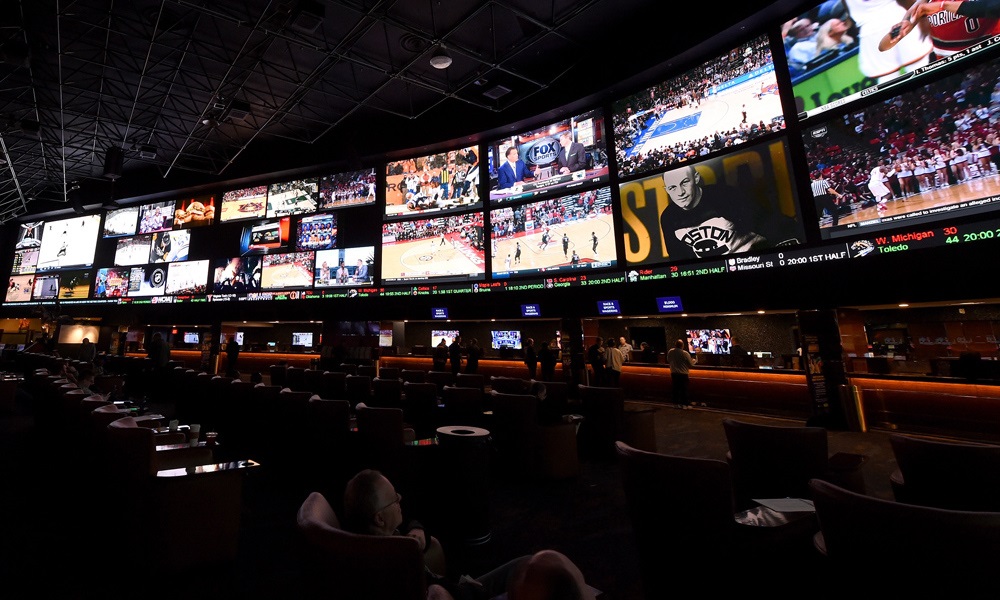Gambling in the USA
A quick peak into the changing future of US sports gambling

It was in 1992 that the US Congress passed the Bradley Act. It was introduced by the New Jersey Senator Bill Bradley, an NBA player in his youth. Officially, the Bradley Act is formally known as the Professional and Amateur Sports Protection Act, or PASPA. The legislation practically banned sports gambling in almost every US state. It was this law that the US Supreme Court has struck down recently.
The Exception to PASPA and How Nevada Benefited
PASPA was not applicable in the state of Nevada. Consequently, Nevada had a monopoly on the gambling in the USA. In almost three decades since the law went into effect, Nevada saw an increase in legal betting on sports of 172 per cent. That meant an increase of $1.8 billion per year to $4.9 billion, as reported by the UNLV Center for Gaming Research.
The Supreme Court Lays down the Law
To many, PASPA seemed an artifact of the pre-Internet era. Fantasy sports somewhat normalised the idea of gambling on games for millions of Americans. Betting on horses used to seem like a quirky vice to a small sector of the population. Fantasy leagues, for example, have now become the norm in sports such as baseball and betting among friends has turned into a common practice for masses of people.
On May 14, 2018, the Supreme Court struck down PASPA in a 6-3 decision. The Justices found PASPA to be an unconstitutional violation of states’ rights. The Supreme Court’s ruling now opens doors for states to legalise sports gambling. Moreover, many states appear eager to do so.
What the Future of Sports Betting Could Mean
So, what are some of the deliberations in terms of the pros and cons of legalised gambling? For one, as mentioned before, billions of dollars go into sports betting every year, not only in Nevada but off-shore foreign sites. When done via external websites, that’s money that’s under the table and untaxed by the United States. Places like Atlantic City, New Jersey are in dire financial situations and have double the unemployment rates than most of the country. As Dennis Drazin, who represents the Monmouth Park Race Track in New Jersey points out, criminals cashing in on illegal better are making out on the financial aspect. He claims we should figure out a legal way of going about it whereas Drazin says, “…it can be regulated; it can be taxed” in addition to providing revenues for local businesses.”
The opposition to sports gambling, however, was meant to protect the integrity of the game. It was set in place to prevent match or game fixing, with bribing for example. Will fans have to worry about padded, secret handshakes affecting the outcome of games? Or will states benefit from the masses of tax revenue once each state individually passes legal betting?
Source: UWM Post
-

 Africa7 days ago
Africa7 days agoPlay’n GO takes games portfolio live with the Goldrush Group in South Africa
-

 Africa6 days ago
Africa6 days agoDRC Signs MoU for Public-Private Partnership with Burundi’s East African General Trade Company
-

 eSports6 days ago
eSports6 days agoEsports World Cup 2025 Unveils Official Song of the Year and Full Opening Ceremony Line-up
-

 Africa6 days ago
Africa6 days agoSpringbok Casino Unveils “Krugerassic Park” Featuring Dino-Wilds to Celebrate Jurassic World: Rebirth Sequel – Plus 25 Free Spins on T-Rex 2 slot
-

 Asia6 days ago
Asia6 days agoLGUs, state university get Php20-M emergency vehicles from PAGCOR
-

 Latest News7 days ago
Latest News7 days agoPG Soft serves up Diner Frenzy Spins
-

 Africa7 days ago
Africa7 days agoALA Hosted Seminar on Artificial Intelligence and Cybersecurity
-

 Latest News7 days ago
Latest News7 days agoJuicy Wins, Crystal Clear: ELA Games Releases New Luxury Title






















